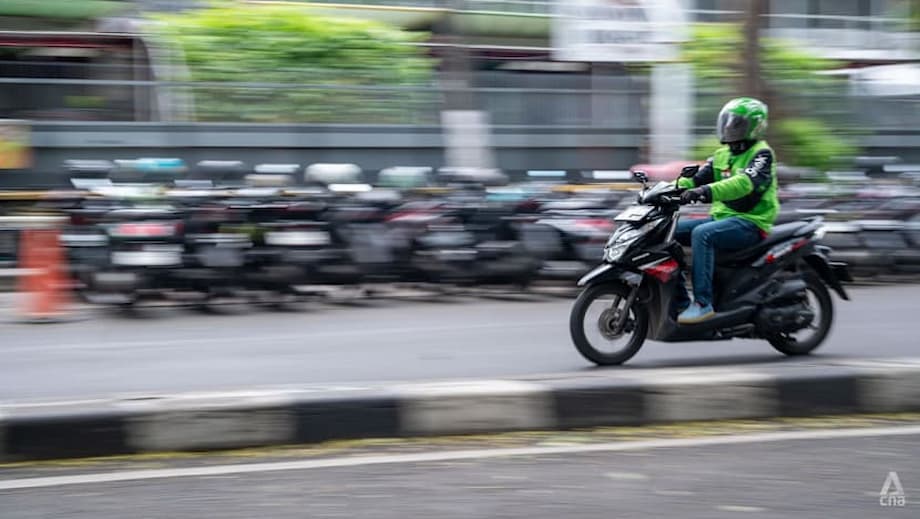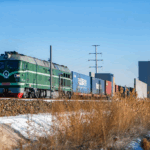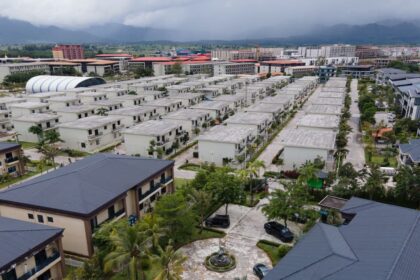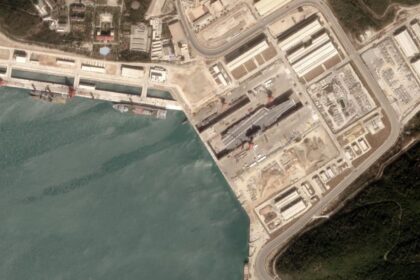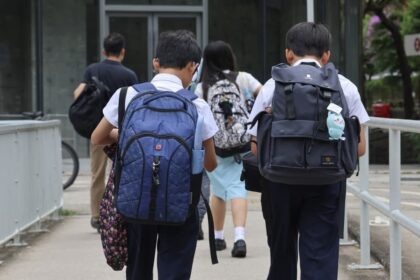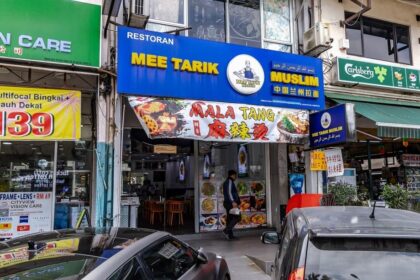Solidarity orders rise as unrest shakes Indonesia
Across Southeast Asia, people have started buying meals and small gifts for Indonesian delivery riders using everyday apps. The gesture, simple on the surface, has become a lifeline and a show of unity as protests spread through Indonesian cities. Demonstrators first took to the streets on Aug 25 over a new housing allowance for members of parliament during a period of economic strain. The protests intensified after two delivery riders died in separate incidents around the unrest. Indonesia’s rights commission says at least ten people have died, including the two riders, as clashes and chaos spilled into several cities. Police have used tear gas and water cannons, while some crowds damaged property and government offices.
- Solidarity orders rise as unrest shakes Indonesia
- How people are sending help through apps
- On the ground, drivers keep working with incomes squeezed
- Government and police under scrutiny
- From Kuala Lumpur to Singapore and Manila, a regional response
- The limits of generosity and the need for safer work
- How to help responsibly when sending a meal
- Key Points
The idea of sending help through apps took off quickly. Social media users shared guides on how to switch locations inside regional apps and buy meals or supplies for riders. Many suggested safe drop off points such as mosque lobbies or a hotel front desk, and reminded people to avoid sending alcohol or pork. What began as a practical tip turned into a regional show of care for workers who keep cities moving while facing shrinking income and heightened risks on the road.
What triggered the protests
Public anger surged after reports that lawmakers were receiving a housing allowance of 50 million rupiah a month (about 3,075 US dollars), close to ten times the minimum wage in Jakarta. That news landed amid rising prices, layoffs and tax changes. The situation escalated further after the death of a young rider during a clash near parliament in Jakarta. Protests expanded beyond the original issue to include calls for police accountability and relief for ordinary families facing higher living costs.
Violence flared in several cities as police and protesters faced off. Security forces fired tear gas and used water cannons. Protesters hurled objects and, in some places, set buildings and vehicles on fire. Malls closed early, trains were delayed and traffic froze in parts of Jakarta and other cities as unrest spread to Surabaya, Bandung, Makassar, Medan, Yogyakarta, Solo and beyond.
Two riders who became faces of the tragedy
Among those killed was Affan Kurniawan, 21, a Gojek rider in Jakarta. He was struck and run over by a police vehicle on Aug 28 while he was out on a delivery, according to witness accounts and rights groups. His death became a rallying cry for students, drivers and rights advocates who demanded justice and restraint by security forces. President Prabowo Subianto visited Affan’s family and publicly ordered a thorough investigation. Police later said seven officers had been detained on ethics grounds in connection with the incident.
Another blow came the next day in Makassar, where Rusdamdiansyah, known as Dandi, a Grab rider, was beaten to death by a mob that accused him of being an undercover officer. Grab said its leadership met Dandi’s family and offered support, while Gojek leaders did the same for Affan’s relatives. The two young men became symbols of how quickly regular workers can be caught in public turmoil.
How people are sending help through apps
The solidarity effort gained momentum after a Thailand based social media user, known as Yammi, posted a step by step guide showing that people outside Indonesia could place orders for riders inside the country. The posts drew tens of millions of views and sparked a flood of screenshots as users in Malaysia, Singapore and the Philippines showed meals and drinks they had sent. Some chose to buy first aid items or bottled water and asked riders to share with colleagues or family members.
Several features helped the effort. Grab’s cross border gifting, available since December 2021, allows customers to send a gift to recipients in other Southeast Asian markets. The company also introduced a Treat a driver option in its food app, making it easy to buy a meal for the person delivering orders. Gojek offers a similar Treat your driver feature in GoFood. These tools were designed for appreciation, and they became channels for support during a crisis.
Many participants suggested simple methods: change the app location to a city such as Jakarta or Surabaya, input a safe, central drop off point like a mosque lobby, and leave clear notes for the rider. Some guides encouraged tips of up to 50,000 rupiah and five star ratings to cushion lost income. Typical orders of around 100,000 rupiah can feed a rider and their family. For gig workers who rely on daily demand, even a modest order can make a difference during a week of roadblocks and unrest.
On the ground, drivers keep working with incomes squeezed
Rider earnings depend on orders, travel time and distance. Protests disrupt all three. Streets close, customers stay home, and safety risks rise for anyone on a motorcycle near a flash point. When a city slows, the effect lands first on workers who are paid trip by trip. Many riders still venture out, balancing the need for income against the hazards that come with crowds, police lines and smoke in the air.
Driver groups are also pushing for change. In Greater Jakarta, the Two Wheeled Movement Action, known locally as Garda, called on riders to deactivate their apps for a set period and gather for a protest. Organizers expected tens of thousands to take part and outlined five demands to the government and platforms: pass a law for online transportation or issue an interim regulation, lower the commission on passenger trips from 20 percent to 10 percent, set clear tariff rules for food and goods delivery, audit platform practices, and end paid membership schemes that promise priority orders. These demands reflect long running concerns about fairness, transparency and take home pay for app based workers.
Platforms and officials did not immediately commit to the proposals, and riders warned of temporary service disruptions if their apps were turned off during peak hours. The possible impact underscores how central these services have become in city life. When riders stop, restaurants, offices and households feel the pause.
Government and police under scrutiny
President Prabowo Subianto called for calm, expressed condolences to grieving families and promised accountability. He visited the home of Affan’s parents in Jakarta and said the state would support the family. Authorities said several officers linked to the death were detained and questioned. The president also announced steps to respond to public anger over parliamentary perks, including plans to revoke some allowances. That move did not end the protests, but it showed the government was willing to revisit decisions that sparked the unrest.
Indonesia’s National Commission on Human Rights, known as Komnas HAM, reported ten deaths tied to the unrest, higher than early tallies of at least six. Rights advocates and community leaders criticized heavy handed tactics and urged restraint. Police have defended their actions as attempts to restore order while opening investigations into specific incidents. In several cities, local officials urged protesters to avoid late night gatherings amid fear that violence would escalate after dark.
The scale of the damage varied by city. In Jakarta, crowds confronted police near parliament and in central districts. In Surabaya, demonstrators breached a government compound. In Bandung and Makassar, regional parliament buildings were burned, and in some places vehicles were torched in the street. Many Indonesians recalled the trauma of past unrest and pleaded for peaceful demonstrations.
From Kuala Lumpur to Singapore and Manila, a regional response
Messages of solidarity poured in from neighboring countries. Malaysians, Singaporeans and Filipinos shared photos of orders sent to Indonesian riders, along with notes of support. Malaysian users in particular posted detailed tips on how to set the app to Indonesian cities and select safe drop off points. Indonesian netizens responded with gratitude and spoke of a kinship that rises during hard times, even if friendly online rivalries flare during normal days.
The momentum reached public figures. Former Jakarta governor Anies Baswedan thanked people across the region for their generosity and praised the sense of shared community. The campaign turned delivery apps into informal bridges between cities. Each ping on a rider’s phone delivered more than food. It conveyed the simple message that someone, somewhere, was thinking of them.
Some reports in regional outlets said the trend spread beyond Southeast Asia, with users in South Korea, the United Kingdom and Austria placing small orders for Indonesian riders. That global thread, although smaller than the regional wave, highlights how modern platforms can connect strangers in real time during a crisis.
The limits of generosity and the need for safer work
Meals and tips ease a tough week, yet they cannot replace secure work and clear rules. Gig workers carry costs for fuel, maintenance and devices. In tense conditions, they also carry extra risk. Riders and labor advocates have long called for safety standards, insurance coverage that actually helps in an accident, and fairer commission structures. The protests have widened that debate and brought more public attention to the people behind the apps.
Government action could include a dedicated online transportation law, enforcement of transparent commissions and tariffs, and stronger complaint channels that drivers trust. A sharper focus on police training and accountability would also address a core concern raised in recent days. Each of these steps aims at a simple goal: a workday that is safe and pays predictably, even when a city is stressed.
Platforms can also help. Clearer fee breakdowns, reliable customer support for drivers, and temporary relief during periods of unrest would send strong signals. Features like Treat a driver build goodwill, but policies that protect income and safety decide whether a rider can keep working through a difficult week.
How to help responsibly when sending a meal
People who joined the solidarity drive offered practical tips that balance kindness with safety. Many changed the app location to a city like Jakarta or Surabaya, selected a central and calm drop off point such as a mosque lobby or hotel entrance, and left a note telling the rider to keep the meal or share it with colleagues. Others advised against sending alcohol or pork, and suggested tipping generously while leaving a five star rating.
Supporters also urged caution. Avoid placing orders near police posts or large protest sites, where riders might face delays or danger. Choose local vendors when possible, which spreads the benefit to small businesses. Small orders add up. Even a simple meal and a drink can brighten a rider’s long shift.
Key Points
- Protests in Indonesia began on Aug 25 over a large housing allowance for lawmakers during economic strain.
- Indonesia’s rights commission reported ten deaths linked to the unrest, including two delivery riders.
- Gojek rider Affan Kurniawan was killed on Aug 28 in Jakarta, and Grab rider Rusdamdiansyah, known as Dandi, died in Makassar the next day.
- App users in Malaysia, Singapore, the Philippines and beyond ordered food and gifts for Indonesian riders as a show of support.
- Grab’s cross border gifting and Treat a driver features, and Gojek’s Treat your driver option, helped channel aid to riders.
- Driver group Garda urged a mass app deactivation in Greater Jakarta and listed five demands, including lower commissions and tariff rules.
- President Prabowo Subianto visited Affan’s family, ordered investigations and signaled cuts to certain parliamentary perks.
- Police detained several officers linked to Affan’s death while rights groups called for restraint and accountability.
- Supporters shared tips to send safe, useful orders, including choosing calm drop off points and adding tips.
- Solidarity orders provide relief, yet longer term safety, fair pay and clear regulations remain central for riders.


